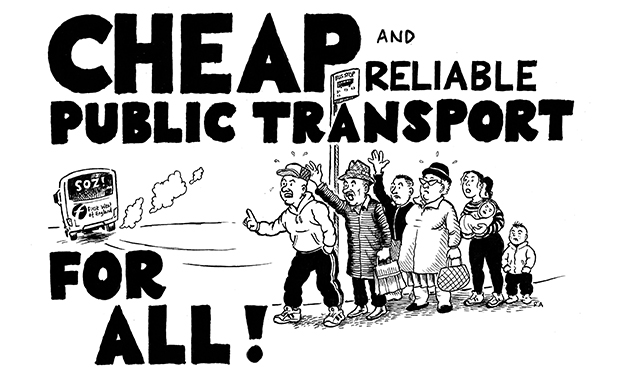The video above features an interview with a striking railworker at an RMT picket in Bristol.
*****
As rail strikes continue to spread across Britain, causing massive disruption and mobilising workers in all three rail unions in a spirited defence of their pay and jobs, the government is leaning on management at Network Rail and the train operating companies not to engage in meaningful talks.
As Mick Whelan of drivers’ union Aslef summed it up: “We’ve been forced into this position by the companies, who say they have been driven to this by the Tory government.”
Faced with a cost of living crisis, and wary of the seething anger that is accumulating in response, the government is eager to head off any kind of organised resistance in advance. The rail unions, and the RMT in particular, have an impressive reputation for using the power of organised labour to resist all attempts to make the working class pay for a crisis which it did not cause.
The government’s aim is clear: to break the rail unions and cow the rest of organised labour into submission. By this policy it hopes to head off future social revolts come the winter.
The two contenders to replace Boris Johnson, Liz Truss and Rishi Sunak, are engaged in a bidding war to establish who can talk toughest about crushing workers’ last remaining rights. Both say they would ban strikes on essential public services, and Truss wants to legislate for minimum service levels on critical national infrastructure.
So the striking rail workers willy nilly find themselves in the vanguard of the resistance, and deserve the full support from the whole working class in their just cause.
The RMT’s Mick Lynch has called for tough measures in retaliation to ministers’ threats to curb industrial action, warning: “If these proposals become law, there will be the biggest resistance mounted by the entire trade union movement, rivalling the general strike of 1926, the suffragettes and Chartism.”
Learn the lesson of history and break the link with Labour
The biggest obstacle blocking unions from following through on these good intentions, however, remains the sapping influence of the imperialist Labour party, to which most are still affiliated. The lessons of the general strike of 1926 remain a closed book for those who forget how the Labour party and the TUC linked arms to sabotage the strike.
The sad fate of Corbynite diehard Sam Tarry, booted out of the shadow cabinet for consorting with the devil on a picket line in Euston, might prompt sympathy – until we recall the crucial role that the fake-left Labour has ever played in keeping the unions hogtied to social democracy.
We will be making some real progress when Sam Tarry, and any other Labour politician, is hooted away from every picket line in disgrace.
More strikes are planned this month and must be given the fullest support.













